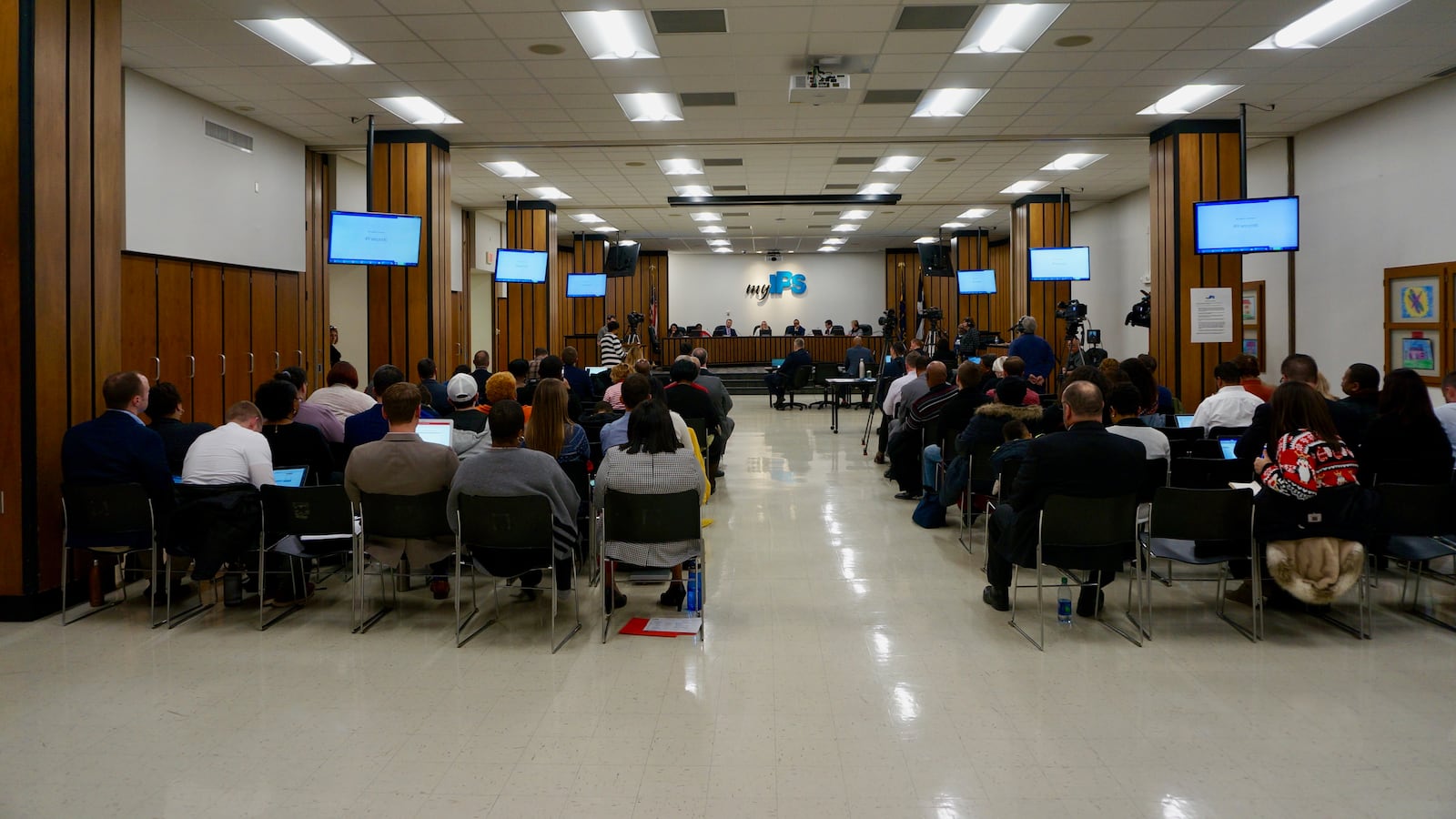The Indianapolis Public Schools board voted Thursday to ask voters for $936 million dollars this May.
District leaders said that in the face of declining state and federal funding, raising local property taxes is the only tool IPS has to pay for teacher raises, building maintenance, busing, and quality programs for students with disabilities.
All five of the IPS School Board members present voted in favor of adding both referendums to the ballot. School board members Kelly Bentley and Venita Moore were absent.
Board member Diane Arnold said the district has worked to be more transparent in its spending and reduces its expense, but it needs more money to continue operating.
“We’re asking for the basic things for our children,” said Arnold. “The children of IPS deserve the same type of high-quality teachers (and) safe buildings that children that live in every other district deserve.”
Two referendums to increase property taxes will be placed on the May primary ballot. One would raise up to $92 million per year for eight years to pay for operating expenses. That money would be used to pay for special education services, transportation and regular maintenance, according to the district.
But the lion’s share of the money raised each year would go to regular teacher raises. The district says that it expects to spend about $66 million — or 72 percent of the funding — on pay for teachers. It wouldn’t bring huge raises for teachers, but IPS estimates it would allow the district to continue giving teachers raises of about 2 percent each year.
The other referendum asks voters to support $200 million in improvements to school buildings, primarily safety updates such as new lighting and door security.
The proposal drew mixed feedback from community members who showed up to speak at public meetings Tuesday and Thursday.
It’s the largest tax increase the district has ever pursued. Whether the politically risky gambit pays off will have huge implications for the state’s largest district. If the referendum prevails, IPS leaders say that besides pay raises for teachers, it will help pay the high price tag for special education.
If it fails, Superintendent Lewis Ferebee warns teacher pay could freeze, the district could cut some of its busing and the quality of special education services could decline.
“We didn’t arrive at this number based on what we thought would be politically appropriate and soothing, but what we actually need to continue to thrive as an organization,” said Ferebee.
Most IPS teachers have received regular raises since 2015, but for several years prior to that, teacher salaries were frozen. That wreaked havoc on the district’s ability to attract and retain teachers, said Ferebee.
If both referendums pass, they will increase taxes by as much as $0.73 per $100 of assessed value on a home. A property owner with a home at the district’s median value — $123,500 — would see property taxes increase by about $29.15 more per month.
At the meeting Thursday, many people spoke in of favor raising taxes. But there were also several people, primarily regular critics of the administration, who don’t trust the administration would use the money wisely.
One of those with concerns was Alex Butler, the guardian of an Arsenal Technical High School student. He said that money is important in helping schools, but Arsenal has other serious issues such as inconsistent leadership.
Butler said he is a homeowner, and he expects his tax bill to go up by $566 per year.
“I have the money to give,” he said. But he is concerned that it will be inefficiently used or will be used to improve buildings that are later sold. “I’m not sure that I will vote for it as long as there’s not more transparency.”
Several IPS educators, community members and business leader spoke in support of the proposal.
John Thompson, a local business owner and member of several boards, said that when companies are looking at where to locate, one of the most important factors is whether a region has skilled workers.
“I am a major property owner in Center Township, in the IPS district. This will cost me and my company thousands of dollars. I think it is worth it,” he said. “There is no better investment than investing in young people.”

